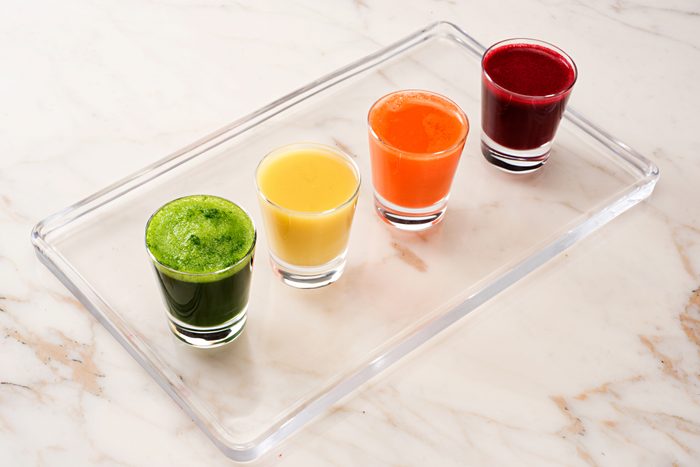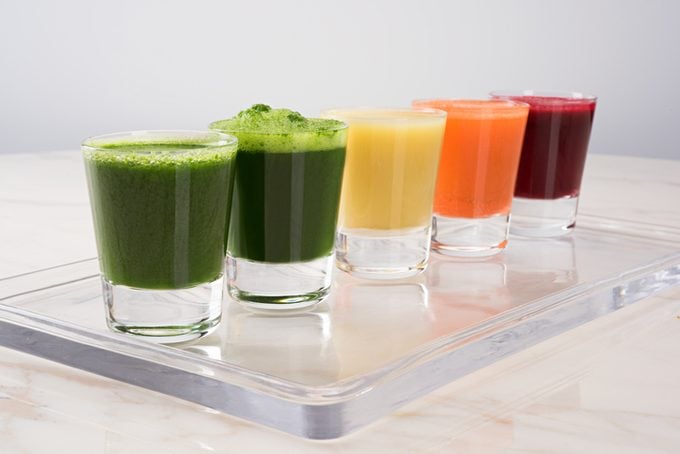Do Immunity Shots Actually Work?
Updated: Jan. 31, 2023

While it's almost never a bad idea to introduce more vitamins to your diet, immunity shots aren't a miracle cure.
If you’ve strolled the juice aisle of a grocery store recently, you’ve probably seen so-called “immunity shots.” The 1- to 3-ounce bottles of bright liquid promise a quick boost in vitamins, and thus, in immune system response. Some consumers are turning to them when they feel a cold coming on, or when they’re just feeling a bit under the weather.
But do they actually work as they promise? What are the potential benefits and how often would one need to take immunity shots to receive them? Consider this your guide to those trendy tiny bottles.
What’s In an Immunity Shot?
The contents of an immunity shot vary greatly by brand, but typically they contain a combination of juices and plant-based sources of vitamins and minerals. Two of the most popular brands, Suja and Vive, both offer immunity shots containing ginger, turmeric, echinacea and black pepper. Suja’s variety also uses coconut water, pineapple, orange, and lemon to boost the vitamin C content. Suja also includes “live probiotics,” which, as a reminder, are still in nascent research stages regarding their effectiveness for particular conditions. Other blends of immunity shots can focus on different vitamins and minerals, such as vitamin D and zinc.
Do Immunity Shots Work?

According to May Zhu, a registered dietician in Chicago (@nutritionhappens), “we can’t really say there’s enough evidence to support any type of therapeutic use to cure anything.” This means, in short, that immunity shots are not a reliable defense against a cold. Additionally, while the vitamins in immunity shots are necessary for a balanced diet, Zhu claims that juice—much like supplements—isn’t the ideal way to reap their benefits. This is because whole fruits and vegetables also contain fiber, which supports both your digestive and immune systems. To that end, immunity shots cannot and should not replace whole foods, nor any other type of vital immunity defense, like vaccines, adequate hydration and hygienic practices.
How Often Would I Need to Drink Immunity Shots to Reap the Benefits?
There’s usually not much of a downside to including more vitamins and minerals in your diet. So, if you love juice, have the money, and want to use immunity shots to fill in any vitamin gaps you’ve noticed in your diet, there isn’t a danger in that. (Just don’t go overdosing on vitamins, OK?) However, in order to cash in on the nutritional benefits of immunity shots, you have to make them “a very regular part of your routine,” according to Zhu. That means once or twice a week, which at $2 to $3 per bottle can add up.
Can I Make My Own Immunity Shots?
To that end, one of the best ways to try immunity shots is to make them yourself. Zhu suggests using natural sources of vitamin C, like pineapple and citrus. Turmeric and black pepper are also great as anti-inflammatories. Simply blend those ingredients with some water or coconut water and drink away.
For maximum immune safeguarding, try including these immune-boosting whole foods in your regular diet and take some time for these immune-boosting self-care habits. Remember: health is a holistic practice, so any one fad product typically won’t cut it alone!
















